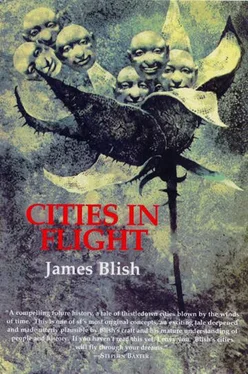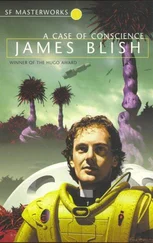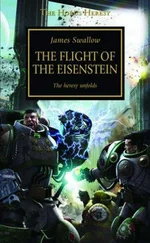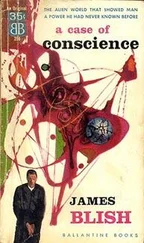James Blish - Cities in Flight
Здесь есть возможность читать онлайн «James Blish - Cities in Flight» весь текст электронной книги совершенно бесплатно (целиком полную версию без сокращений). В некоторых случаях можно слушать аудио, скачать через торрент в формате fb2 и присутствует краткое содержание. Жанр: Фантастика и фэнтези, на английском языке. Описание произведения, (предисловие) а так же отзывы посетителей доступны на портале библиотеки ЛибКат.
- Название:Cities in Flight
- Автор:
- Жанр:
- Год:неизвестен
- ISBN:нет данных
- Рейтинг книги:4 / 5. Голосов: 1
-
Избранное:Добавить в избранное
- Отзывы:
-
Ваша оценка:
- 80
- 1
- 2
- 3
- 4
- 5
Cities in Flight: краткое содержание, описание и аннотация
Предлагаем к чтению аннотацию, описание, краткое содержание или предисловие (зависит от того, что написал сам автор книги «Cities in Flight»). Если вы не нашли необходимую информацию о книге — напишите в комментариях, мы постараемся отыскать её.
Cities in Flight — читать онлайн бесплатно полную книгу (весь текст) целиком
Ниже представлен текст книги, разбитый по страницам. Система сохранения места последней прочитанной страницы, позволяет с удобством читать онлайн бесплатно книгу «Cities in Flight», без необходимости каждый раз заново искать на чём Вы остановились. Поставьте закладку, и сможете в любой момент перейти на страницу, на которой закончили чтение.
Интервал:
Закладка:
“Mark. The rhodium-palladium series should go next. Watch out for diagonal disintegration; it may cross with the iron series—” A star flared and burst.
“There it goes!”
“Mark,” Schloss said, squinting through a gamma-ray polariscope.
“Got it. Cripes. It crossed at cesium; what does that mean?”
“Never mind, mark it. Don’t stop to interpret, just record.”
The ghost seemed to shiver and shrink a little. A pure piercing tone came from its heart, wavered, and died; but it died scooping upward toward the inaudible.
“First hour,” Schloss said. “Twenty to go. How long did the pip take?”
There was no answer for several minutes; then another voice said: “We don’t have it down to jiffies yet. But it was short by nearly forty micro-seconds, and it Dopplered the wrong way. It’s decaying in time, Dr. Schloss—it may not last as long as ten hours.”
“Give me the decay-rate in jiffies on the next pip and don’t miss it. If it’s going that fast we’ll have to recalculate all emission records on the decay curve. Jake, are you getting anything on the RF band?”
“Masses of stuff,” Jake said, preoccupied. “Can’t make anything of it yet. And it’s scooping—that’s your decay-rate again, I suspect. What a scramble!”
In this wise the second hour flew by, and then the third. Shortly thereafter, Amalfi lost track of them. The tension, the disorder, the accumulating fatigue, the utter strangeness of the experiment itself and its object, the forebodings all took their toll. These were certainly the worst possible conditions under which to gather even routine data, let alone take readings on an experiment of this degree of criticality, but once again the Okies had to make do with what they had.
“All right, everyone,” Schloss said at last. “Closing time.” His brow was deeply furrowed; that frown had been growing line by line during most of the final twelve hours. “Stand well back; the artifact will be the last to go.”
The investigators and spectators alike—or those few spectators whose interest had been intent enough to keep them there throughout the entire proceedings—drew back to the walls of the gloomy chamber. The spindizzy whine beneath them rose slightly in both pitch and volume, and the ghost that was Object 4001-Alephnull disappeared behind a spindizzy screen polarized to complete opacity.
At first the spherical screen was mirror-like, throwing back grotesquely distorted images of the silent onlookers. Then a pinprick of light appeared in its center, growing soundlessly to a painful blue-white intensity. It threw out long cobwebs and runners of glare, probing, anastomosing, flowing along the inner surface of the screen. Instinctively, Amalfi shielded his eyes and his genitals in an instinctive gesture of all mankind more than two millennia old. When he was able to look again, the light had died.
The spindizzies stopped and the screen went down. Air rushed into it. Object 4001-Alephnull was gone, this time forever, destroyed by the death of a single crystal of salt.
“Our precautions were insufficient; my fault,” Schloss said, his voice harsh. “We are all well over our maximum permissible dose of hard radiation; everyone report to the hospital on the double for treatment. Troops, fall in!”
The radiation sickness was mild; bone-marrow transfusions brought the blood-forming system back into normal function before serious damage was done, and the nausea was reasonably well controlled by massive doses of meclizine, riboflavin, and pyridoxine. All the participants who had any hair to lose lost it, including both Dee and Estelle, but they all got it back in due course except for Amalfi and Jake.
The second degree sunburn was not mild. It held up the interpretation of the results for nearly a month, while the scientists, coated in anesthetic ointment, sat about on the wards in hospital robes and played bad poker and worse bridge. In between post-mortems on the bridge hands, they speculated endlessly and covered square miles of paper with equations and ointment grease-spots. Web, who had not lasted long enough to be present at the destruction of the crystal of salt, visited daily with bouquets for Estelle—the star-gods alone knew where and how he unearthed so antique a custom—and fresh packs of cards for the men. He took away the spotted sheets of equations and fed them to the City Fathers, who invariably said: “NO COMMENT. THE DATA ARE INSUFFICIENT.” Everyone knew that already.
At long last, however, Schloss and Jake and their crews were freed from their sticky pyjamas to tackle the mountains of raw information awaiting them. They worked long hours; Schloss in particular never remembered to eat, and had constantly to be reminded by his technicians that they had missed lunch and it was now past dinnertime. In Schloss’s defense, however, it had to be admitted that his crew was the hungriest in the history of physics, and the lunch they had missed usually was just the formal meal they were accustomed to consuming after they had emptied the fat packages they brought into the laboratories; in proof of which, they all gained five or ten pounds while they were complaining the loudest.
A month after their discharge from the hospital, Schloss, Jake and Retma called a joint conference. Schloss had back the frown he had worn during the last twelve hours of the experiment, and even the traditionally impassive Hevian looked disturbed. Amalfi’s heart turned over in his chest at his first glimpse of their expressions; they seemed to confirm every foggy apprehension of his dream.
“We have two pieces of bad news, and one piece of news which is wholly ambiguous,” Schloss said, without any preliminaries. “I don’t myself know in exactly what order I ought to present them; in that, I’m being guided by Retma and Dr. Bonner. It is their judgment that you all ought first to know that we have competition.”
“Meaning what?” Amalfi said. The mere idea, empty of detail, made him prick up his ears; perhaps that was why Retma and Bonner had wanted it placed first.
“Our missile recorded clear evidence of another body in the same complicated physical state,” Schloss said. “No such object could conceivably be natural in either universe; and this one was enough like ours to make us sure it came originally from our side.”
“Another missile?”
“Without any doubt—and about twice the size of ours. Somebody else in our universe had found out what the Hevians found out, and is investigating the problem further along the same lines that we are—except that they appear to have had a head start of three to five years.”
Amalfi pursed his lips soundlessly. “Any way of guessing who they are?”
“No. We guess that they must be relatively nearby, either in our own main galaxy or in Andromeda or one of its satellites. But we can’t document that; it’s below the five per cent level of probability, according to the City Fathers. All the other alternatives are way below five per cent, but where no solution is statistically significant, we aren’t entitled to choose between them.”
“The Web of Hercules,” Amalfi said. “It can’t be anything else.”
Schloss spread his hands helplessly. “It could well be anybody else, for all we know,” he said. “My intuition says just what yours says, John; but there’s no reliable evidence.”
“All right. That’s the ambiguous news, I gather. What’s the first piece of bad news?”
“You’ve already had it,” Schloss said. “It’s the second piece of news, which is ambiguous, that makes the first piece bad. We’ve argued a long time about this, but we’re now in at least tentative agreement. We think that it is possible—barely possible—to survive the catastrophe.”
Читать дальшеИнтервал:
Закладка:
Похожие книги на «Cities in Flight»
Представляем Вашему вниманию похожие книги на «Cities in Flight» списком для выбора. Мы отобрали схожую по названию и смыслу литературу в надежде предоставить читателям больше вариантов отыскать новые, интересные, ещё непрочитанные произведения.
Обсуждение, отзывы о книге «Cities in Flight» и просто собственные мнения читателей. Оставьте ваши комментарии, напишите, что Вы думаете о произведении, его смысле или главных героях. Укажите что конкретно понравилось, а что нет, и почему Вы так считаете.












